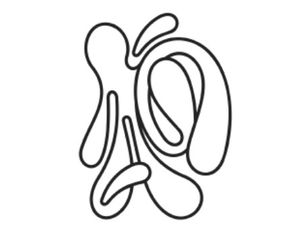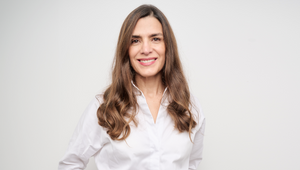
Brand Insight: Pony Malta, the Colombian Brand that’s Re-Energised Its Purpose and the Country’s Young

If you’re not from Colombia or Ecuador, chances are the phrase ‘Pony Malta’ means nothing to you. For Colombians, however, it’s a brand name that’s loaded with meaning – it means energy, it means youth, it means unleashing your potential. It’s a brand that’s woven into Colombian society, 67 years old and much loved.
Pony Malta is a brand of non-alcoholic malted energy drink – a flavour uncommon around the world but popular in the Andes region, sweet and less beer-y than malted drinks sold in Thailand and Germany. The brand was launched in 1953 by Cervecería Bavaria, and now falls under the remit of drinks giant AB InBev. It’s long been marketed for its energy-bestowing benefits, and over time it’s become a brand targeted towards children, teens and young people. Many in the country grew up with the brand, as it was a popular snack for school recess or college study breaks – or a pre-soccer match energy boost.
But the brand’s history and heritage have proven to be a blessing and a curse. The brand is loved locally and is part of the pop cultural lexicon. But how do you make sure a brand with such a weighty legacy is still relevant to the TikTok ‘n’ Fortnite generation?
About a year and a half ago, the Pony Malta team at AB InBev’s non-alcoholic beverage division and their agency, decided to pro-actively revitalise the brand by deepening its purpose and getting into the issues that really matter to the children and teens of Colombia. That move was triggered by the arrival of Juan Alonso Torres, as the non alcoholic brands director at AB Inbev Colombia (he’d come from elsewhere in the AB InBev business, where he was franchise manager for beer brand Aguila).
Traditionally, and prior to the arrival of Juan Alonso, Pony Malta’s purpose platform was around helping tends and kids to ‘release the best version of themselves’ – but only in a fairly narrow context, as MullenLowe SSP3’s chief creative officer Carlos Andrés Rodríguez explains.
“Before Juan Alonso came on board, it was only about releasing the best version of themselves, it was only sports and physical energy. But with the last couple of years, and when Juan Alonso came, we wanted to find a deeper purpose, not only a physical one, but only a more emotional one,” continues Carlos. “There are many problems that kids and teens have in their daily lives that don't let them release that best version of themselves, and that's why we started to attack things like bullying.”
Adolescence is a dizzying time, plagued with issues and problems – so the team had to apply a bit of focus in order to figure out what topics to tackle. Juan Alonso says he has some very clear filters. For every idea that the MullenLowe SSP3 team presents, Juan Alonso has one question. What’s the behaviour change?
“Right now, they feel lonely, they're bullied, they have issues with their parents, there's a lot of tensions around them, and most of them are stopping them from releasing the best version of themselves. So I think that's the first filter,” explains Juan Alonso. “And for me, the second filter is we choose the actions which we know will have the best results in terms of a behavioural change for these things, and will help our consumers live in a better world. I know it sounds cheesy, it sounds like I am a very warm marketeer. But when you do that, commercially, in the market and brand-wide, you get a better connection with your customers. So at the end of the day, I have incredible results regarding a digital interaction, digital engagement, brand power, and brand equity in general.”
This year alone has seen Pony Malta show up in some surprising places, launching a steady drumbeat of creative work that’s resonating with its audience. In July, they hacked Spotify and Instagram to create ‘Pridelists’, curated playlists that showcased different strands of the Pride rainbow and LGBTQ+ experiences. In September, on National Video Games Day, they called out toxic bullying in online gaming by encouraging gamers to change their tags to an anti-bulling statement. In October they leveraged the lip synch capability on TikTok to encourage young girls to share speeches by powerful, inspirational women like Megan Rapinoe and Michelle Obama in a campaign called #SheSpeaks.
In order to get the tone right, Juan Alonso, Carlos and the teams have approached the creative from a perspective of humility. For one thing, on the creative side Carlos has made sure to actively pursue talent who are closer in age to the target demographic and who are active on platforms like TikTok and in spaces like gaming. He’s also created an environment where the most junior creatives have the confidence to contribute their ideas. Over at AB InBev, they have a wealth of data and a substantial panel of teens that they frequently talk to and survey.
“Carlos and I try to be very humble with the work we do. I'm always pushing my team to touch base with our consumers. For example regarding the 'She Speaks' movement, I loved the pitch of Michelle Obama. But let's be real, maybe this Colombian girl that lives here across the street doesn't know Michelle Obama, and maybe it's not relevant for her. Or maybe the tone of voice of that speech is not working for her. So we always try to put our egos apart and say, ‘OK, let's make sure we talk to our consumers’,” says Juan Alonso.
What’s been really interesting with this new approach is that it’s seen the Pony Malta brand content reach new markets. At present, the brand is sold in Colombia and Ecuador, but thanks to the PR reach of the campaigns and the fact that many of the influencers or pro gamers they are working with have a regional reach across all of Latin America, Pony Malta is not just refreshing its image within Colombia.
“Bullying in video games is not a Colombian problem. Empowerment for little girls is not a tension that is only happening here. It's worldwide. So our campaigns, fortunately, are having a little bit more regional impact. And actually, I think one that's one of the goals that Juan Alonso and I have for the campaigns,” says Carlos.
And the ideas are also rippling out internationally via the AB InBev global network. “Just today, I presented the #SheSpeaks campaign, to the whole NABs (non-alcoholic beverages) team at AB InBev globally. And a lot of markets that also look after some very different beverages were like, ‘please send me this campaign!’, ‘can I replicate this in my market?’. So, we did not plan to do this globally, but we will try because we know that the impact of a lot of brands coming together on an initiative would be great.”
That concept of impact is particularly relevant right now. The pressures of Covid-19 mean that bang for buck is a crucial consideration – ideas that can generate earned media are more than welcome. Disruptive and talked-about ideas are more important than glossy, bland work that needs to be pumped out over expensive paid media.
“With Covid, our budget was reduced a lot,” says Juan Alonso. “We couldn't invest during the peak months of Covid. And after that, we had just a specific amount of money for specific campaigns. So we can talk about about the interactions, comments, the efficiency of the of the pieces that we are posting digitally, but for me saving money is reliant on a disruptive idea.”
Covid-19 has also presented the brand with an additional challenge: it’s a brand that’s traditionally consumed outside the home, in schools, colleges and workplaces, but in Colombia the schools have been closed since March and there’s little sign of them re-opening yet. As behaviour change is a favourite topic of Juan Alonso’s, it seems that there is a huge behaviour change problem to solve. MullenLowe SSP3 has been working to devise new occasions to consume Pony Malta at home and that’s going to be one of the key objectives for the coming year. Within the past couple of months they've launched a series of commercials that depict people using Pony Malta as an excuse to take a break from notably indoor activities like gaming and washing up.
There’s also a third strand to Covid-19, which is the increased focus on wellbeing and health. That’s why this year Pony Malta launched a low-sugar line extension called Pony Vital.
Looking forward to 2021, the plan is to build on what’s already been achieved, to create a more cohesive and constant platform inspired by their sense of purpose, and, from a commercial perspective, to encourage people to drink Pony Malta at home.
“The nice thing is that we want to do a lot of things - so that's that's a nice problem to have!” enthuses Juan Alonso. “For me it [my goal] would be, in terms of market and commercial brand performance, getting into our consumers' houses. It's a very difficult task again, it requires reconfiguring a routine, changing behaviours and consuming differently. The second one [goal], for me, is to make this 'better worlds stance' part of a platform that we’ll be executing regularly all year long.”
Carlos agrees. “We don't want them to be just separate actions, but to be part of a stronger platform. The lessons that we learned this year were that Pony Malta could speak about bullying, it can actually speak about empowerment of girls. So let's not just do small actions on international days, but let's make it part of a stronger platform that can really help the world.”
Given the progress they’ve made with the brand during a very difficult year, that’s thrown up challenges that they would never have expected when they first made their plans to re-energise the brand, 2021 and the hope of a vaccine that will let kids return to school and return to sports, should see Pony Malta gallop ahead.













